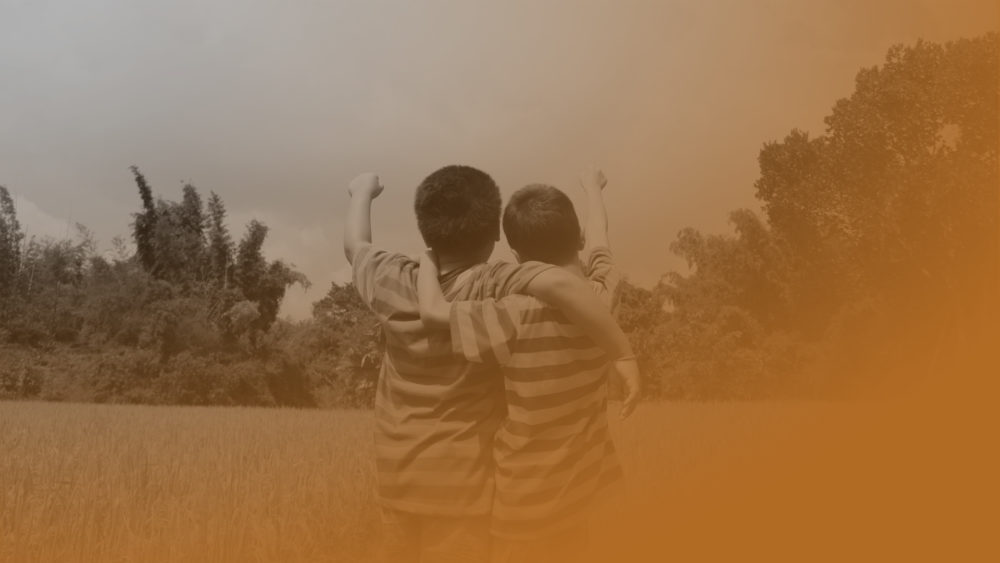The world is failing children
November 20, 2023
ARCSEA statement in commemoration of International Children's Day 2023

Around the world, children’s rights are under attack.
The world’s children are living in a world of conflict and wars. The United Nations International Children’s Emergency Fund (UNICEF), estimates that almost 400 million children, or one in every five, are living in or fleeing from conflict zones. Children are being killed, injured, or sexually abused and violated. They are orphaned as they lose their parents, relatives, and friends. Displaced, they are separated from their families and peers, lose critical years of education and play, and break ties from their communities.
In the past 40 days alone, over 5,000 children have been brutally murdered by Israeli forces in Gaza. An additional 1,800 children are missing under rubble of destroyed buildings, most of whom are presumed dead.
The world is failing children on the most fundamental human right – the right to live.
Even outside of conflict zones, children and their rights are also under threat.
Neoliberal economic policies worsened by a global public health emergency have raised the levels of inequality and poverty worldwide. About 1.2 Billion children are living in poverty and inequitable government investments in social services have made many of them multidimensionally poor – meaning they lack access to health care, education, proper nutrition, or adequate housing.
Even play – the most quintessential children’s activity – is being severely limited due to shrinking free, open, public spaces.
Even play – the most quintessential children’s activity – is being severely limited due to shrinking free, open, public spaces.
Domestic abuse and violence as well as sexual exploitation and abuse of children – offline and online – is a reality and the number of cases continues to rise. Southeast Asia, has been noted as the global hotspot of online sexual abuse and exploitation of children (OSAEC). The Philippines, in particular has emerged as the center of child sex abuse materials production in the world, and a national study estimates that 80% of Filipino children are vulnerable to online sexual abuse, some facilitated even by their own parents.
Forced marriages and female genital mutilation continue to be practiced in many parts of the world and cases of child and teenage pregnancy are on the rise.
The world is failing children on their right to thrive.
Children are disproportionately bearing the brunt of the consequences of environmental degradation and climate-related disasters. Despite being the least responsible for the emission of greenhouse gas, children are the most vulnerable to the adverse effects of a changing climate, including rising temperatures, extreme weather events, and disruptions to ecosystems.
Inadequate measures to mitigate climate change and insufficient adaptation strategies exacerbate the risks faced by children, affecting their health, education, and overall well-being. Limited access to clean water, food insecurity, and the increased prevalence of diseases further jeopardize their future. Additionally, the long-term impacts of climate change, such as sea-level rise and environmental degradation, threaten the very foundation of the world in which they live.
The failure to take decisive global action not only jeopardizes the current generation but also compromises the ability of future generations to thrive.
The failure to take decisive global action not only jeopardizes the current generation but also compromises the ability of future generations to thrive.
The world is failing children on their right to a better future.
Various instruments, declarations, and laws have long recognized the right of children to participate in policy making and decision making, especially on issues that directly affect them. Adults like to talk, but barely do the walk and allowing children to participate have largely been tokenistic, ceremonial, and superficial.
Social and cultural norms that look down at children and their ability to decide for themselves remain the norm. Adults, especially decision makers and governments continue to doubt the fact that children, despite their innocence and vulnerabilities, can also effect change and make a positive, lasting impact on their community.
The world is failing to listen and pay attention to children.
It has been 34 years since the adoption of the United Nations Convention on the Rights of the Child (CRC) – supposedly the most widely ratified human rights treaty in the world. Its ratification is a symbolic acknowledgement of the inalienable rights of all children. However, we continue to fail children as we create a world that continues to be hostile to children and their rights.
As we commemorate international children’s day, the Association for the Rights of Children in Southeast Asia enjoins everyone to unite and protect the world’s most valuable asset, who are also our future – the children. ###
